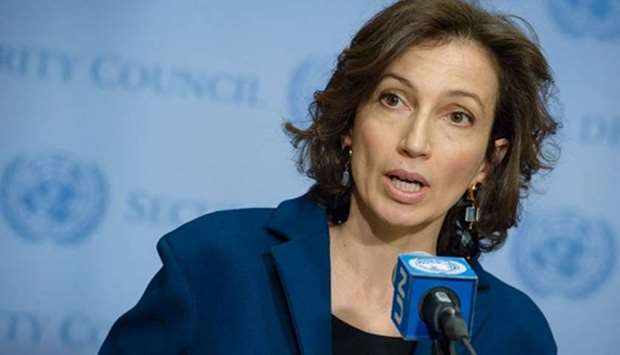Both Iran and the United States must observe a convention obliging states to preserve cultural sites, the UN's cultural agency said on Monday, after President Donald Trump threatened to target Iran's cultural heritage.
UNESCO director general Audrey Azoulay highlighted that both Tehran and Washington had signed a 1972 convention prohibiting states from taking "any deliberate measures which might damage directly or indirectly the cultural and natural heritage" of other states.At a meeting with the Iranian ambassador to the Paris-based organisation, Azoulay said that both countries had signed a 1954 convention for the protection of cultural property in the event of armed conflict, UNESCO said.
Azoulay "stressed the universality of cultural and natural heritage as vectors of peace and dialogue between peoples, which the international community has a duty to protect and preserve for future generations".
Trump tweeted on Saturday that the United States would target some sites "at a very high level & important to Iran & the Iranian culture" if Tehran attacked American personnel or assets in retaliation for the killing of commander Qasem Soleimani.
Iran's Foreign Minister Mohammad Javad Zarif said in return that such a move would be a "war crime".
But Trump showed no sign of backing down from that threat on Sunday, saying: "They're allowed to use roadside bombs and blow up our people. And we're not allowed to touch their cultural site? It doesn't work that way."
Iran boasts 22 cultural sites on UNESCO's world heritage list.
They include the majestic Meidan Imam square -- also known as Naghsh-e Jahan -- in the city of Isfahan that was built by shah Abbas I at the start of the 17th century.
The most outstanding site is considered by many to be the ancient Achaemenidian capital of Persepolis in southwest Iran, founded by Darius I in 518 BC, and a major attraction for foreign tourists.

